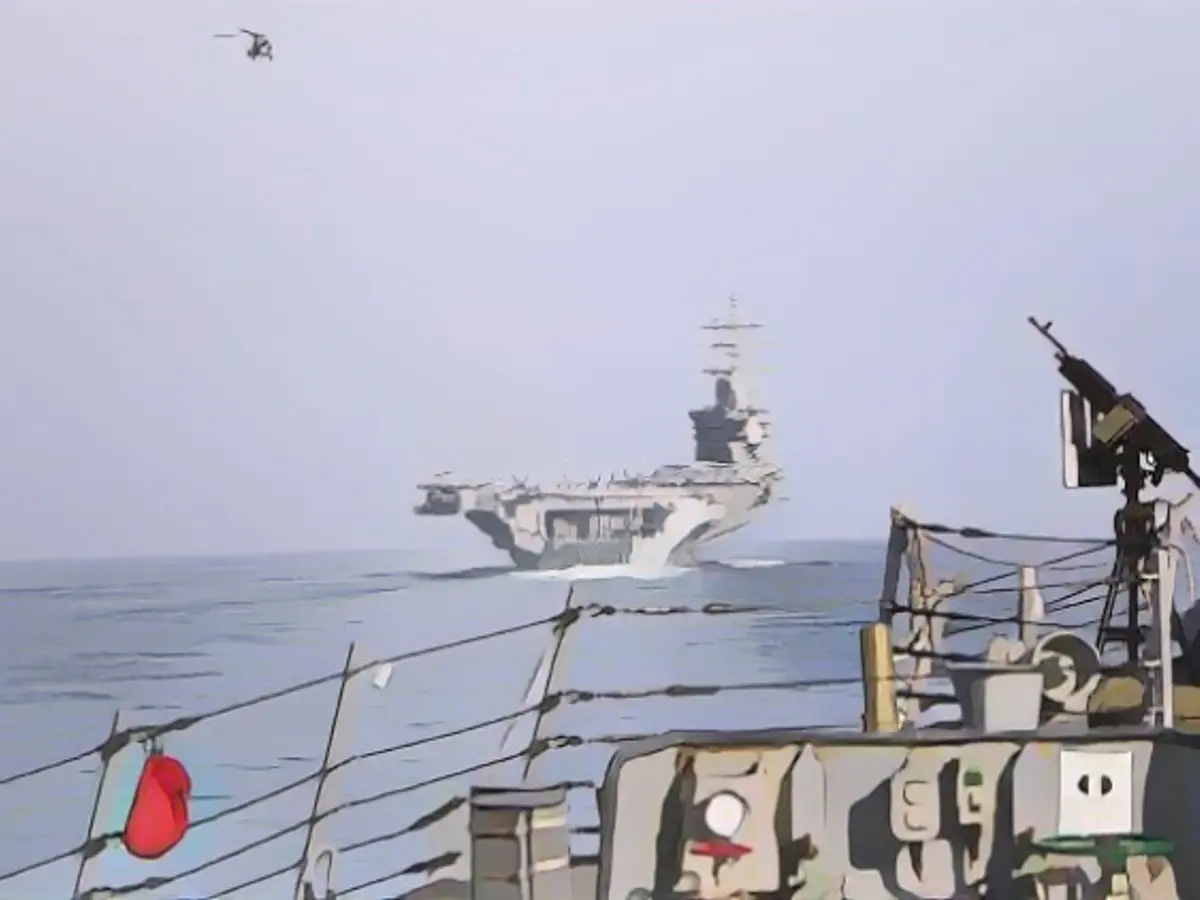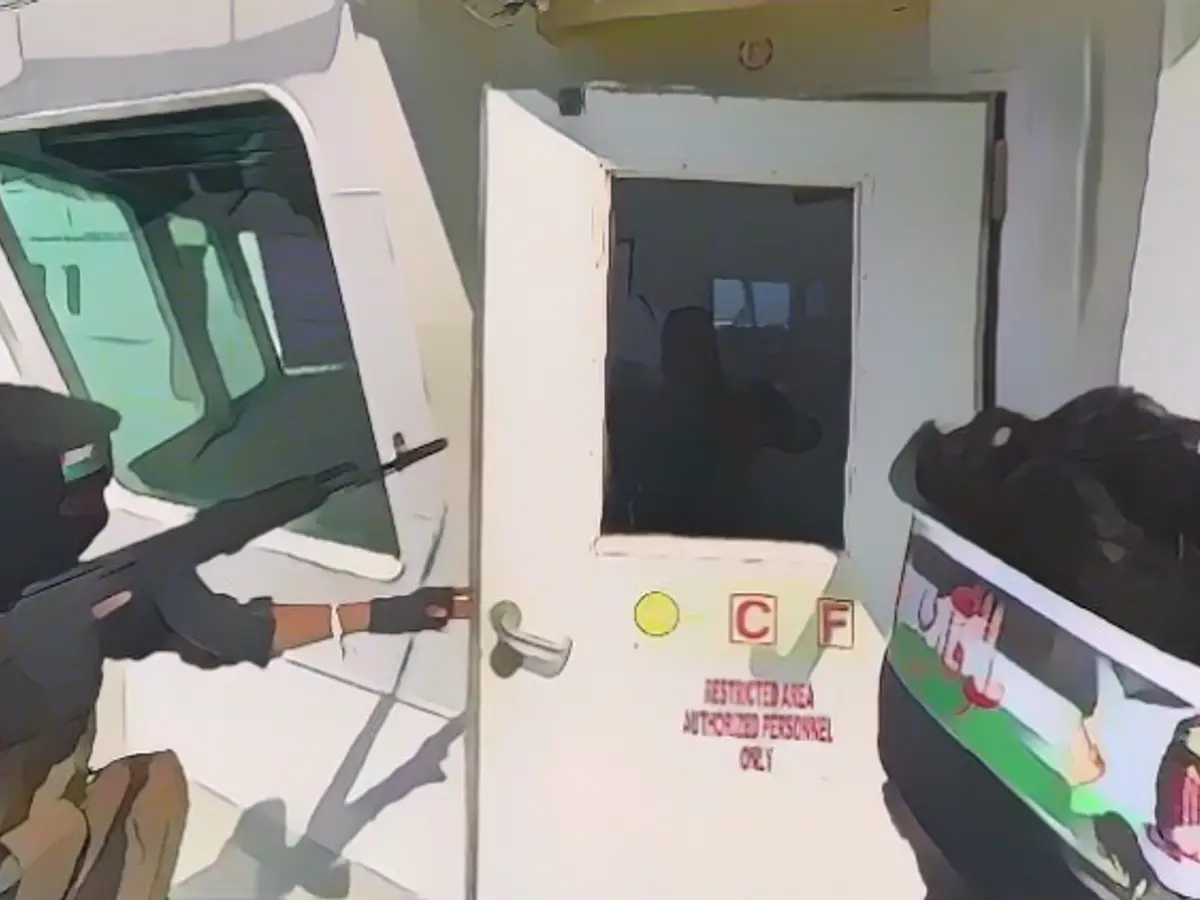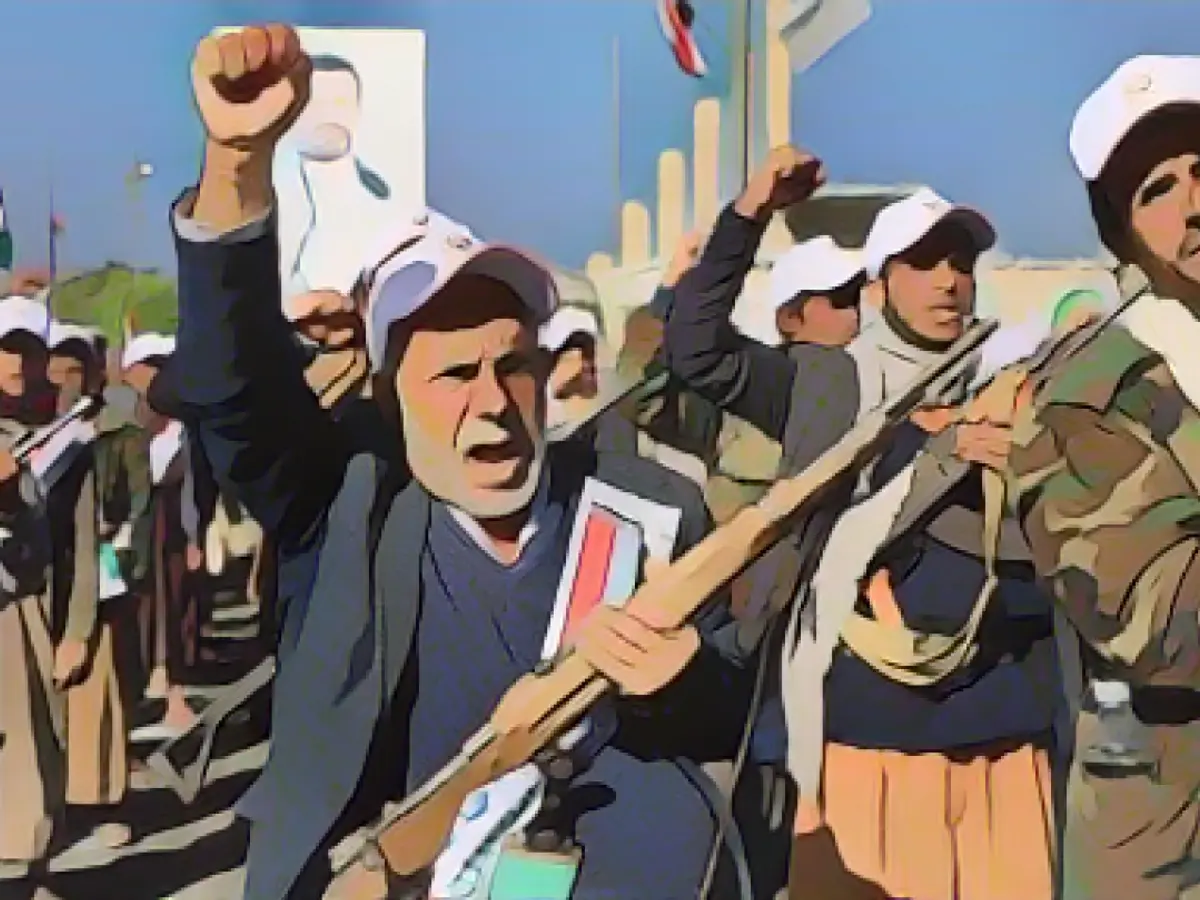Unleashed Hostilities: Civilian Ships Under Ongoing Assault in Indian Ocean and Red Sea
The seas surrounding India and Africa continue to echo with disturbing incidents of armed attacks. Recent events point to continuing hostilities towards civilian ships, with both the United States and Iran leveling accusations against each other. Let's delve into the latest developments in this volatile situation.
Iranian Drone Strikes Liberian Freighter
Reports from the United States Department of Defense have confirmed an attack on a Liberian-flagged tanker, the "Chem Pluto," by unmanned aerial vehicles (UAVs) or drones, off the Indian coast. The vessel, operated by the Dutch and owned by Japanese interests, is one of seven merchant ships that have fallen victim to Iranian assaults since 2021. The attack took place approximately 200 nautical miles from India's shores, with the drone originating from Iranian territories.
British maritime safety firm Ambrey revealed that the strike caused a fire on the ship, which was promptly extinguished by the vessel's crew. Water also infiltrated the ship as a result of the incident. As of now, the Iranian authorities have not issued a response.
Unmanned Aerial Vehicle Threats Persist in the Red Sea
On the same day, the United States military claimed that they had successfully shot down four drones that were heading towards a US destroyer in the Red Sea. The drones were reportedly launched from territories controlled by the Houthi insurgents, who have an alliance with Iran. The Houthi rebels have been targeting cargo ships in the Strait of Bab al-Mandab for several weeks now, aiming to back Palestinian fighters in the Gaza Strip conflict.
Two further distress calls were made by other freighters; a Norwegian tanker managed to fend off the drone attack without any damage, while a crude oil tanker under Indian flagship reported suffering a drone strike. Anti-ship missiles were also fired from Houthi territories towards ships in the Red Sea, albeit without causing any reported hits.
Multinational Efforts to Safeguard Shipping Lanes
The heightened tensions around on-going conflicts and security concerns in the region have prompted the US to launch the Prosperity Guardian mission to protect crucial sea routes for international trade. With backing from over a dozen nations, the US aims to patrol critical shipping lanes, including the Red Sea, to maintain the flow of global commerce. Although Germany has yet to make a decision, its military is rumored to be considering taking part in this mission.
Exploring the Context of the Conflict
- The Houthi Conflict and Iranian Involvement: Since 2014, the Houthi movement, supported by Iran, has seized a significant part of Yemen's territory, including the Red Sea coast. This struggle against the internationally recognized Yemeni government has paved the way for a proxy war in the Red Sea region and beyond, with Iran backing the Houthis through political and military support.
- Gradual Escalation in Shipping Attacks: Since the beginning of the conflict, the Houthi rebels have been targeting merchant and naval vessels in the Red Sea and the Bab-el-Mandeb strait, aiming to disrupt global commerce and project power in the region. Their attacks have resulted in severe disruptions and forced commercial vessels to reroute their routes around Africa to bypass the perceived danger in the Red Sea.
- International Response and UN Measures: International Coalition Ashmara was created in August 2023 to protect the Red Sea from the threat posed by the Houthi rebels, having identified the Bab-el-Mandeb strait as a critical chokepoint for global trade. Following the adoption of UN Resolution 2722 in January 2024, a global coalition led by the US has been formed to counter the Houthi attacks on maritime transportation in the region, with over twenty countries participating, including Greece and India.
Trials and tribulations, it seems, never cease to affect the tranquility of our seas. As hostilities escalate and alliances shift, it becomes ever more imperative for national and international naval forces to provide protection to commercial interests, lest these tensions impede the smooth flow of global commerce. As the situation unfolds, we stand in solidarity with the shipping industry and its resilience in the face of these challenges.
References
- "The Houthi Conflict: Aspects of the Current Crisis." Middle East Institute,
- "The Houthis: Who are they and why is Iran supporting them?" BBC,
- "Who Are Yemen's Houthis and Why Are They Fighting the Saudi-Led Coalition?" The New York Times,
- "US Navy Op Amnestyd vs. USS Mccain." Global Security,
- "US, Germany Discuss Naval Cooperation Amid Russian Threats in the Baltic." DW,
- "Yemen's War Explained." BBC,
- "Iran-Yemen Ties: Quadrilateral Dialogue and the Expansion of Iran's Influence." Oxford Research Group,
- "International Coalition Takes Action in Bab-el-Mandeb Strait." United States Central Command,
- "US-led coalition patrolling Red Sea to protect global trade from Houthi attacks – as it happened." The Guardian,







